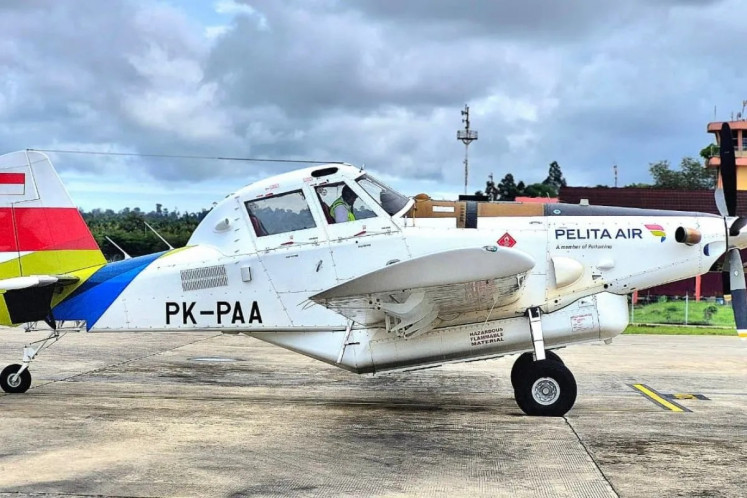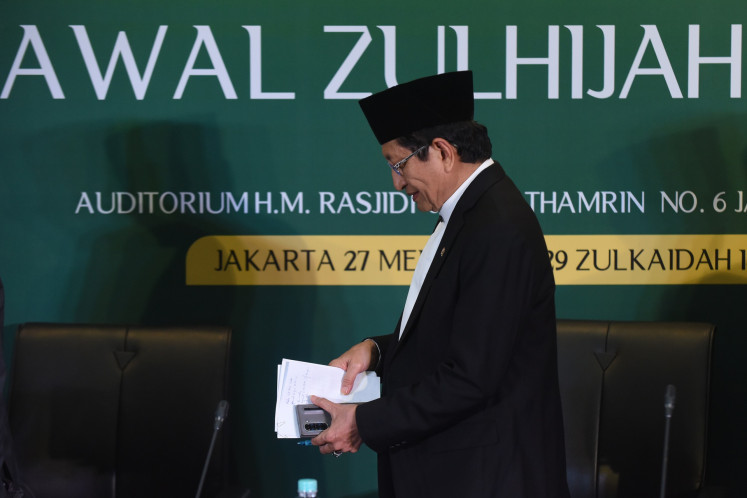Popular Reads
Top Results
Can't find what you're looking for?
View all search resultsPopular Reads
Top Results
Can't find what you're looking for?
View all search resultsPrabowo’s milk program requires import of 2.5m dairy cows: ID Food
ID Food said Indonesia would need to import 2.5 million dairy cows for the free milk program proposed by the Prabowo-Gibran team.
Change text size
Gift Premium Articles
to Anyone
P
resumptive president-elect Prabowo Subianto’s free milk campaign would require Indonesia to import 2.5 million dairy cows from abroad, state-owned food holding company ID Food recently revealed.
The import of so much livestock is deemed necessary, it said, because of Indonesia’s low domestic dairy cattle population, estimated to be around 400,000.
The country would need 1.2 million productive dairy cows just to cover existing national demand and production rates, which has grown only 1.5 percent in the past five years.
ID Food’s director for business development and control Dirgayuza Setiawan suggested that almost 80 percent of the country’s demand for dairy milk is currently being met through imports, primarily of powdered milk.
Yuza, a one-time speechwriter for Prabowo, underscored the need for new state policies that encourage domestic milk production and reduce reliance on imports.
“While the specifics of the next president’s policies are still unknown, we remain confident that he and his team will prioritize limiting dependence on imported milk,” he was quoted by Detik as saying last week.
Prabowo has clinched a commanding lead in the Feb. 14 presidential election, according to preliminary results, in part on the back of a populist free lunch campaign that includes free milk. The official election results are expected to be announced by March 20.
The proposal has been lauded and criticized in almost equal measure, especially in light of the largely unsuccessful food estate program that President Joko “Jokowi” Widodo entrusted to his defense minister.
Nevertheless, the free lunch program has already been incorporated into the Jokowi administration’s government working plan (RKP), as well as the 2025 projections for macroeconomic and fiscal policy (KEM-PPKF).
The two documents serve as the foundation for preparing the 2025 state budget, which is the responsibility of the incoming government and the next batch of legislators.
Previously, Prabowo’s team calculated that the free lunch program would cost up to Rp 120 trillion (US$7.6 billion) in the first year of his presumed presidency, and would then be ramped up gradually until 2029, according to his close aide Budiman Sudjatmiko.
Despite the substantial budget, National Food Agency (Bapanas) head Arief Prasetyo Adi acknowledged potential positive impacts of the free milk program on both upstream and downstream sectors of the dairy industry.
He insisted, however, that the program was still just a proposal and that his comments were based on a hypothetical scenario of implementation.
Regarding the potential benefits, Arief highlighted the opportunities the program presents to supply chain development. If dairy cows were imported and distributed to farmers, they could use them to produce milk domestically.
"By importing cows and distributing them to farmers, each farmer could receive 3-5 cows. The milk could then be collected and processed, ensuring adequate nutrition for the people while meeting the standards of the milk industry," Arief recently said, as quoted by CNBC Indonesia.











